El general Stephen Townsend ultima los acuerdos de defensa de Estados Unidos con Argelia, Túnez y Marruecos

Last week the US Secretary of Defence, Mark Esper, travelled to Morocco, Algeria and Tunisia to sign important defence cooperation agreements with the heads of the three North African countries. This was preceded by visits by senior military officers and heads of financial institutions.
Prior to the arrival of the Pentagon chief, generals and important executives of the Department of Trade went to Rabat, Algiers and Tunis to work out the final details and eliminate the points of discrepancy in the agreements Mark Esper was to sign.
As an infantry officer who graduated from the West Point Military Academy in 1986 and a veteran of the Pentagon, the defence secretary's intention was to learn in advance and at first hand of the concerns and demands that the civilian and military authorities of the three nations were going to formulate in his capacity as envoy of President Donald Trump.
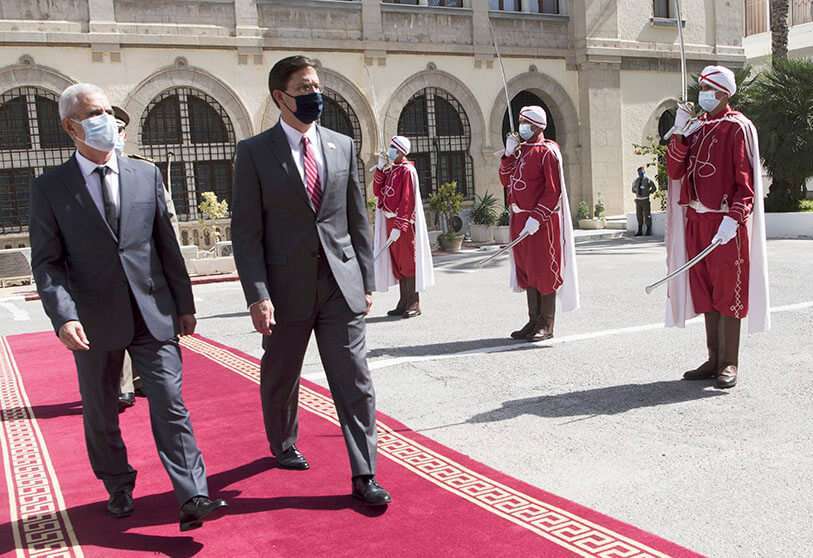
Mark Esper chose as his messenger, interlocutor and problem solver the head of the African Combatant Command (AFRICOM), Lieutenant General Stephen Townsend, whom he knew from his previous period as head of the Training and Doctrine Command when the politician was the secretary of the army (2017-2019).
The head of AFRICOM and his entourage arrived in Tunis on September 9 and immediately visited President Kais Saied to convey to him that the Trump Administration regarded the country as an important ally and that it will continue to train and provide electronic surveillance technologies to Tunisian military units in order to maintain the security of its border with Libya.
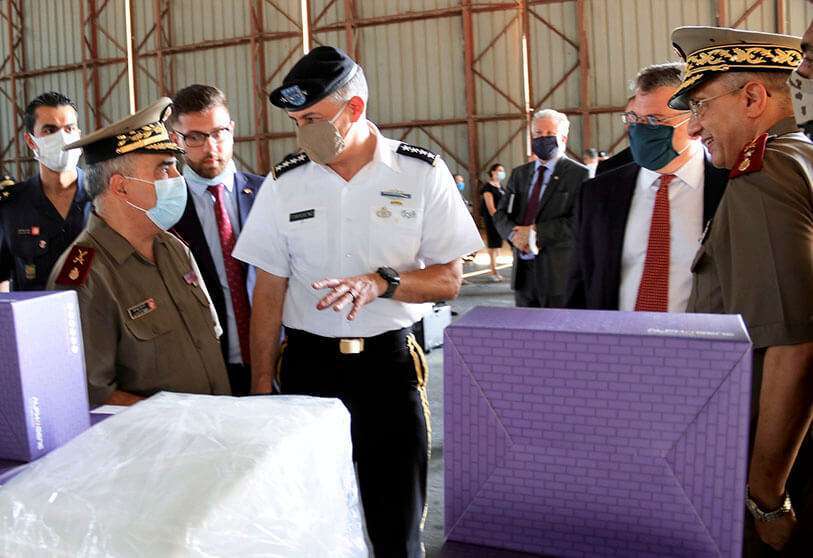
The military delegation led by Lieutenant General Stephen Townsend held a lengthy meeting with the defence minister, Ibrahim Bartagi, to finalise a defence agreement that has taken two years to materialise. Though less ambitious than the roadmap finally agreed with Morocco, it establishes a 10-year programme of cooperation in the exchange of intelligence, air transport, command and control, surveillance, reconnaissance and humanitarian operations.
Before leaving Tunisia with its mission accomplished, the military high command took advantage of his stay to set up a video conference with Libya's new defence minister, Salah Eddine al-Namrush, to whom he expressed the Trump Administration's support for the UN-led process of intra-Libyan dialogue and the fight against terrorism, and the Pentagon's interest in the departure of all the foreign military and mercenary forces from the country.
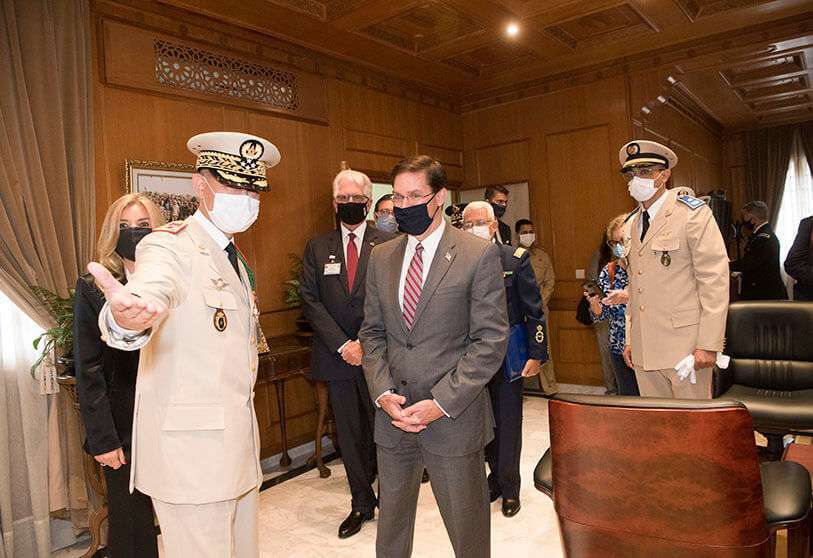
The head of AFRICOM returned to North Africa a few dates earlier than the defence secretary. He landed in the Algerian capital on September 23 to meet President Abdelmadjid Tebboune, who also holds the post of defence minister. His mission was to put forward arguments for increasing the not easy relations with the Algiers authorities, the most reluctant of the three countries to fill the agreements with important matters.
With a key geostrategic position for the security of North Africa and the Mediterranean, four-star General Stephen Townsend expressed to the recently elected Algerian president-in power since December 2019-the advisability of strengthening bilateral ties and increasing US cooperation and assistance, particularly in combating terrorist organisations linked to al-Qaeda.
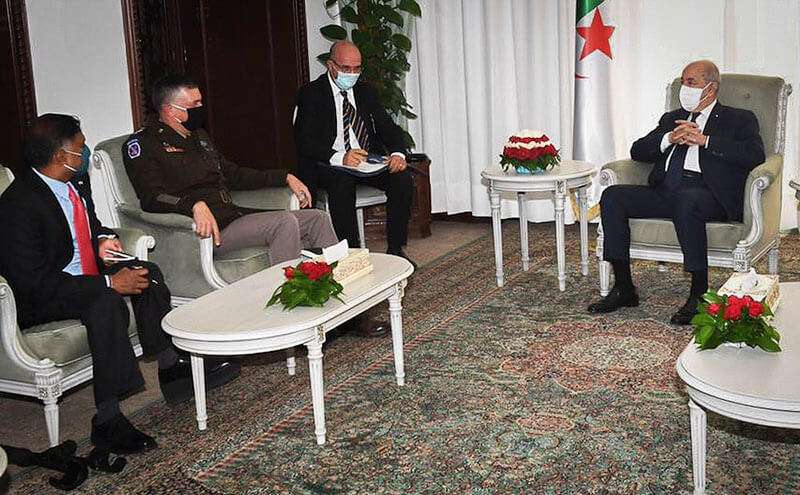
The US military delegation also met the foreign minister, Sabri Boukadoum, to discuss the conflict in Libya. The two discussed the consequences of the military mutiny in Mali in mid-August. During their meeting with the recently appointed head of the armed forces, Lieutenant General Said Chanegriha-who was in Moscow at the end of June to close arms purchases-they exchanged points of view on methods of sealing the thousands of kilometres of border Algeria shares with Libya and Mali.
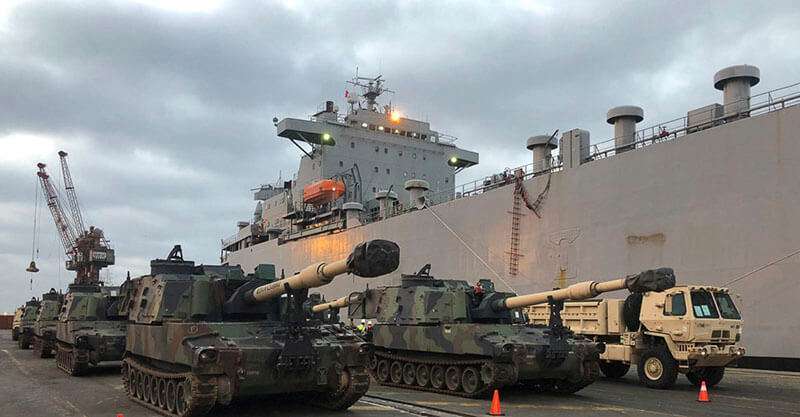
The case of Morocco is different from that of Algeria and Tunisia. The Alaouite kingdom is a firm, reliable and committed ally of the United States in the region and the Pentagon's relations with the Royal Forces are very close in all respects. With the agreement well defined, Rabat called on Washington for help in boosting its aerospace and defence industry.
Before the defence secretary set foot on Moroccan territory, an official economic delegation headed by the executive director of the International Development Finance Corporation (DFC), Adam Boehler, arrived with high-ranking representatives of the National Security Council and the president of the US Export-Import Bank (EXIM), Kimberly Reed.
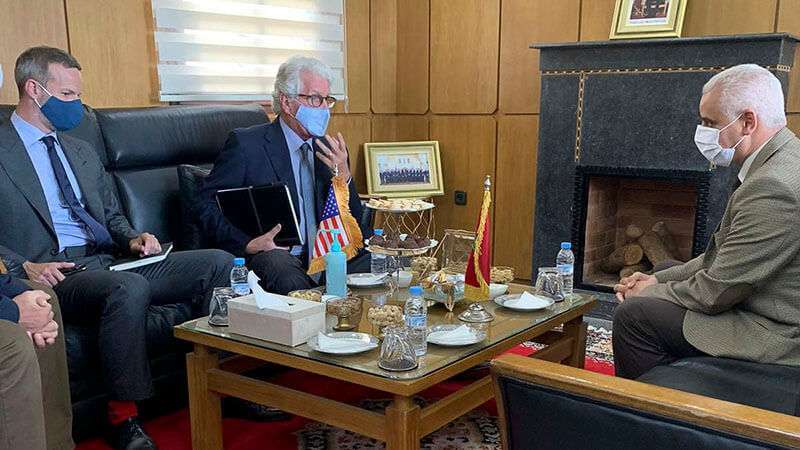
In collaboration with other government agencies, including the Department of Defense, the DFC acts as a development bank. Its role is to open the way for US investment in sectors such as energy, health, critical infrastructure and aerospace to support US foreign policy. The delegation met with senior members of the Moroccan prime minister's government, Saadeddine el Othmani, and representatives of the private sector in their attempt to expand investment in the country's strategic industries.
On the military front, one of the Pentagon's ways of fostering stability in the region is to improve co-operation, interoperability and training of the three countries' armed forces with their US counterparts and the NATO nations. The main instrument chosen is the African Lion tactical air-land exercises, annual joint manoeuvres in which the Spanish army participates.
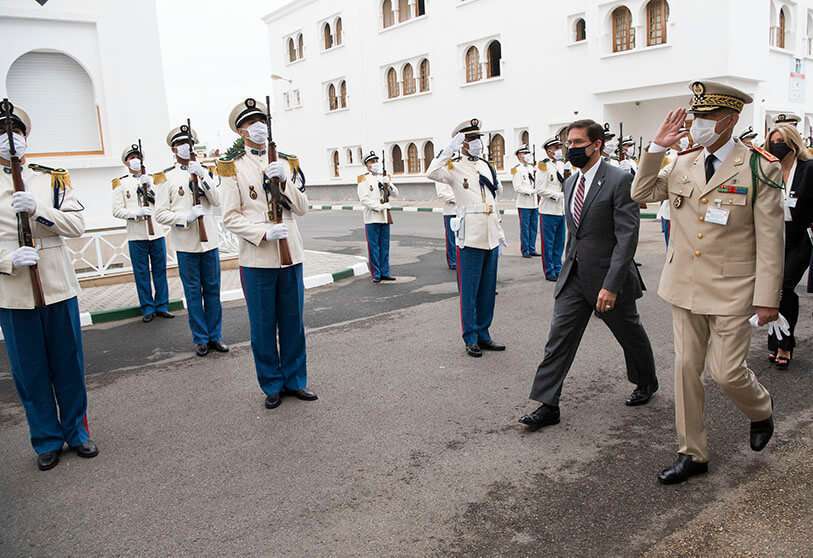
The 2020 exercise was scheduled to take place on the territory of Morocco, Tunisia, Senegal and Spain between March 23 and April 3. The purpose of the exercise was to assess the deployment and combat capabilities of a multinational force of some 5,000 troops against terrorist groups. Military units from Morocco, Tunisia, Egypt, Mauritania and Senegal were to take part, with the participation of operational centres from Australia, Belgium, Canada, France, Germany, Italy, the Netherlands, Portugal, Spain, the United Kingdom and the United States. However, the spread of the COVID-19 pandemic forced the cancellation of the operation in mid March.











